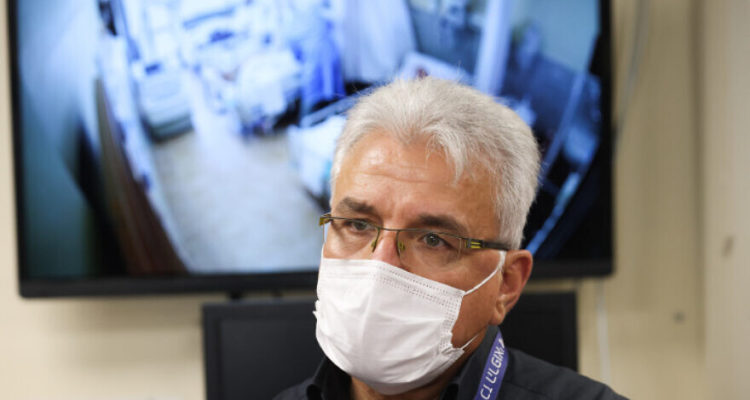COVID-19 and its variants are likely here to stay, and we can live with that. It’s the officials with the power to dictate how we do so that we need to worry about.
By Ruthie Blum, JNS
The announcement on Thursday evening that Israeli President Isaac Herzog was granting Likud Party chairman Benjamin Netanyahu a 10-day extension to form a coalition (the original deadline was midnight Sunday) virtually coincided with an unrelated piece of news that warranted far more concern than it’s been garnering.
But, given the cacophony emanating from the bloc defeated in the Nov. 1 Knesset elections, and the impatience of the victors for the government to be signed, sealed and delivered, the public’s lack of attention to a renewed warning about COVID-19 is understandable. Furthermore, most Israelis—inoculated, infected and recuperated—had already grown inured to the issue by the time that the bulk of the pointless pandemic restrictions were lifted in April.
So, when Channel 12 reported that Coronavirus Project Coordinator Salman Zarka had told outgoing caretaker Prime Minister Yair Lapid that “morbidity is on the rise,” it was barely picked up by other outlets.
Even his urging that everybody resume wearing masks, particularly in enclosed spaces, such as stores, buses and trains—and be extra cautious during family gatherings over the upcoming Hanukkah holiday—seems to have elicited barely a yawn.
That this news, following two full years of a mixture of illness and imposed hypochondria, did not elicit hysteria is a sign of societal health. However, Israelis ought not to be too complacent. The virus and its variants are likely here to stay, and we Israelis can live with that. It’s the officials with the power to dictate how we do so that we need to worry about.
Since Zarka assumed his role quite late in the game, he never attained the household-name status of his two predecessors. One can only hope that his relative anonymity remains intact. Otherwise, we’re in for a rerun of the reality show that catapulted Health Ministry and hospital directors to celebrity beyond their wildest dreams.
Indeed, prior to the pandemic, they were faceless figures. Within weeks of the global onset, the amount of screen time they received was so great that each underwent very visible makeovers. If they hadn’t been screaming about adhering to the six-foot social-distance requirement, they would have been hounded everywhere for selfies.
Ditto for health reporters. Whereas they previously had taken a back seat to colleagues covering defense, politics and the economy (not to mention the weather, of course), they were suddenly leading every broadcast and appearing prominently above the fold of newspapers.
They were not at fault for their fame, nor can they be blamed for missing the addictive limelight.
Yet, while those people benefitted, including financially, from the invasion of the virus, the rest of us were in dire straits. The lockdowns were excessive; their enforcement seriously violated our privacy and freedom.
It was not accidental that the daily data on the death toll, number of positive tests and hospitalizations lacked corresponding information on the age or pre-existing conditions of the afflicted. Had we been privy to the details, we would have been able to choose the level of caution we exercised.
Instead, the entire population was subjected to blanket rules, whose frequently arbitrary nature made little medical sense. Possession of a press card, for example, was sufficient to provide an exemption from the prohibition to stray more than 100 meters from the front door of one’s home.
Then there was the insanity of divorced couples being permitted to drive their kids back and forth between residences, while singles were forced to maintain relationships via Zoom. The ridiculous list goes on, as does the argument over vaccine mandates.
These were never formally introduced. Still, the need to produce proof of vaccination or a negative coronavirus test to be granted entry to various venues amounted to coercion.
Personally, I have no objection to the jabs. It’s masks and other constraints that I and many others can’t tolerate.
We mustn’t be bullied by Zarka into accepting a return to literal and figurative muzzling practices that bode worse measures to come. And let’s pray that he’s not successful at persuading the incoming government to heed his over-the-top admonitions.
Ruthie Blum is an Israel-based journalist and author of “To Hell in a Handbasket: Carter, Obama, and the ‘Arab Spring.’ ”





